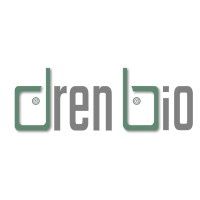预约演示
更新于:2026-02-26
DR-01
更新于:2026-02-26
概要
基本信息
药物类型 单克隆抗体 |
别名 DR-01 program、DR 01、DR-01 |
靶点 |
作用方式 抑制剂 |
作用机制 CD94抑制剂(killer cell lectin like receptor D1 inhibitors) |
在研适应症 |
非在研适应症- |
原研机构 |
在研机构 |
非在研机构- |
权益机构- |
最高研发阶段临床1/2期 |
首次获批日期- |
最高研发阶段(中国)- |
特殊审评孤儿药 (美国) |
登录后查看时间轴
结构/序列
Sequence Code 1114991475H

来源: *****
Sequence Code 1114991493L

来源: *****
关联
3
项与 DR-01 相关的临床试验NCT06766864
A Randomized, Double-blind, Placebo-controlled, Phase 1 Study Evaluating the Safety and Pharmacokinetics of Subcutaneous Administration of Single Ascending Doses of DR-01 in Healthy Volunteers
This is a randomized, double-blind, placebo-controlled, Phase 1 study to evaluate the safety, tolerability, PK, immunogenicity, and PD of SC administration of single ascending doses of DR-01 in healthy volunteers.
开始日期2025-03-03 |
申办/合作机构 |
NCT06602232
A Pilot, Safety and Clinical Activity, Phase 1b Study of DR-01 in Adults With Alopecia Areata or Vitiligo
This is a multi-center, parallel-group, open-label, randomized, Phase 1b study to explore the safety, clinical activity, pharmacokinetics and pharmacodynamics of DR-01 in adults with Alopecia Areata or Vitiligo.
开始日期2024-10-30 |
申办/合作机构 |
NCT05475925
A Multicenter, Open-Label, First-In-Human, Multiple Expansion Cohort, Phase 1/2 Study to Evaluate the Safety and Efficacy of DR-01 in Adult Subjects With Large Granular Lymphocytic Leukemia or Cytotoxic Lymphomas
This is a multicenter, first-in-human, Phase 1/2 study to evaluate the safety, tolerability, pharmacokinetics, pharmacodynamics, and anti-tumor activity of DR-01 in adult patients with large granular lymphocytic leukemia or cytotoxic lymphomas
开始日期2022-07-13 |
申办/合作机构 |
100 项与 DR-01 相关的临床结果
登录后查看更多信息
100 项与 DR-01 相关的转化医学
登录后查看更多信息
100 项与 DR-01 相关的专利(医药)
登录后查看更多信息
27
项与 DR-01 相关的新闻(医药)2025-12-15
SAN CARLOS, Calif.--(BUSINESS WIRE)--Dren Bio, a privately held, clinical-stage biotechnology company developing first-in-class myeloid cell engager therapeutics, announced today that it has entered into a strategic collaboration with Sanofi (NASDAQ: SNY) for the discovery and development of a next-generation B-cell depleting therapy for the treatment of various autoimmune diseases.
The new agreement builds on the existing relationship between the two companies, following Sanofi’s acquisition earlier this year of Dren Bio’s DR-0201 program for deep B-cell depletion.
The new agreement builds on the existing relationship between the two companies, following Sanofi’s acquisition earlier this year of Dren Bio’s DR-0201 program for deep B-cell depletion. DR-0201, now known as SAR448501, is currently being evaluated in two ongoing phase 1 studies and has shown robust B-cell depletion, with the potential to induce sustained treatment-free remission in patients with autoimmune diseases.
“Our newly expanded strategic alliance with Dren Bio reflects Sanofi’s deep commitment to developing best-in-class therapies with the potential to achieve remission in patients with immune-mediated diseases,” said Alyssa Johnsen, Global Therapeutic Head, Immunology and Oncology Development at Sanofi. “By combining Dren Bio’s unique scientific approach with Sanofi’s development expertise, we aim to accelerate the development of innovative therapies for patients in need.”
Amit Mehta, Ph.D., Chief Operating Officer and Chief Business Officer of Dren Bio, added, “Sanofi has been a valued partner in unlocking the full potential of deep B-cell depletion through the acquisition of DR-0201, and we’re thrilled to expand our collaboration by further leveraging the capabilities of our Targeted Myeloid Engager and Phagocytosis platform. The U.S. profit/loss share option allows us to partner with a global commercial leader and represents an important milestone in our growth into a fully integrated biopharmaceutical company.”
Under the terms of the agreement, Dren Bio will receive an upfront payment of $100 million and is eligible to receive up to $1.7 billion in development, regulatory, and commercial milestone payments. The companies will collaborate on discovery and preclinical development activities leveraging Dren Bio’s proprietary platform. Following development candidate selection, Sanofi will assume subsequent responsibility for development, manufacturing, regulatory, and commercialization efforts. Dren Bio has the option to enter into a U.S. profit/loss sharing arrangement with Sanofi. If exercised, Dren Bio will co-fund 40% of ongoing global development costs in exchange for U.S. co-promotion rights and a 50/50 share of U.S. profits and losses. Dren Bio will also remain eligible to receive milestones and tiered royalties on net sales outside the United States.
About Dren Bio
Dren Bio is a privately held, clinical-stage biopharmaceutical company pioneering the discovery and development of novel first-in-class antibody therapeutics for the treatment of cancer, autoimmune, and other serious diseases. Its lead clinical candidate, DR-01, is currently being evaluated in multiple oncology and autoimmune indications. Dren Bio’s proprietary Targeted Myeloid Engager and Phagocytosis Platform is a multispecific antibody-based technology designed to induce potent depletion of disease-causing agents by engaging a novel phagocytic receptor selectively expressed on myeloid cells. Multispecific antibodies generated from the platform are engineered to activate phagocytic mechanisms only in the presence of disease targets, potentially offering a superior safety profile over other immunomodulatory therapies. Dren Bio’s lead platform candidate, DR-0201, was acquired by Sanofi in May 2025. DR-0201, now known as SAR448501, is currently being evaluated in two ongoing phase 1 studies and has shown robust B-cell depletion, with the potential to induce sustained treatment-free remission in patients with autoimmune diseases. Its second platform candidate, DR-0202, advanced into first-in-human clinical studies in patients with solid tumors in Q2 2025. In addition, Dren Bio has built an extensive preclinical pipeline including additional multispecific antibody programs generated from its platform, targeting indications in oncology, immunology and neurology. For more information, please visit www.drenbio.com.
临床1期免疫疗法细胞疗法并购引进/卖出
2025-12-15
For the second time this year, Sanofi is buying into the B cell depletion work at Dren Bio.
The French pharma giant will
pay
$100 million upfront and up to $1.7 billion in biobucks for access to the California startup’s next-gen B cell depleting therapy for undisclosed autoimmune diseases.
The goal of such therapies is to tamp down on problematic cells and prevent them from wreaking inflammatory havoc on the body.
Dren can co-fund future development of its drug in exchange for co-promotion rights in the US and a 50/50 share of profits and losses in the US.
“The US profit/loss share option allows us to partner with a global commercial leader and represents an important milestone in our growth into a fully integrated biopharmaceutical company,” Dren chief operating and business officer Amit Mehta said in a statement.
Autoimmune diseases have become a central focus of Sanofi’s R&D work, with other startups benefiting from its deep-pocketed reserves this year, including
Earendil Labs
. Sanofi’s autoimmune ambitions ran into a double
setback in multiple sclerosis
earlier on Monday morning, with a Phase 3 failure and a delay to an FDA review.
Earlier this year, Sanofi paid
$600 million upfront
for a different asset from Dren. The Phase 1 candidate, called DR-0201, is being investigated in autoimmune diseases, though it was originally developed for cancer. That deal was part of a broader
wave of single-asset purchases
by biopharma companies.
Sanofi is not alone in doing multiple deals with the same partner.
Novartis went to Monte Rosa
for molecular glues twice in 11 months and has also made two deals with siRNA maker
Argo Biopharma
. Novo Nordisk has also doubled up on existing partnerships before, promising
Valo Health
up to $4.6 billion in a pact that it greatly expanded in January.
For Dren, Sanofi marks its third pharma partner. The startup has engaged in dealmaking multiple times since its unveiling in 2020. It’s lined up Pfizer and Novartis in deals worth more than
$1 billion
and
$3 billion
, respectively, if all goes to plan.
Dren’s internal pipeline includes a clinical-stage asset dubbed DR-01 for hematologic malignancies and autoimmune conditions, and DR-0202 for solid tumors.
The biotech last disclosed a
$65 million Series B
in June 2022, but it likely has at least a few years of runway thanks to the asset sale and three pharma partnerships.

细胞疗法临床1期临床3期免疫疗法
2025-11-24
·氨基观察
©氨基观察-创新药组原创出品
作者 | 沙晓威
TCE自去年以来相当火热,诞生了多笔重磅交易。而在结构上与其类似的髓系细胞衔接器(MCE),也突然从小众机制分子,跃升为多家MNC争抢的战略资产。
先是诺华以30亿美元与Dren Bio达成合作,利用后者开发的靶向髓系细胞衔接器和吞噬平台开发双抗疗法;紧接着赛诺菲直接以6亿美元首付款买下Dren Bio的DR-0201,这个CD20靶向MCE在难治性红斑狼疮患者身上出现18个月无治疗缓解期,正在加速进击自免市场。而继与礼来达成合作后,泽安生物又与GSK签下4个MCE项目合作协议……
尽管在交易金额层面还难与TCE相比,但从如今的交易及临床推进情况上看,MCE这条新的免疫疗法赛道,正在快速成形。
机制上,MCE疗法靶向髓样细胞能降低CRS的风险,在适应症范围上可能应用更广,这也是MCE获得大药企青睐的关键。
当然,MCE能否成为“下一个TCE”,甚至超越之,还需要更多的临床数据来证明。
/ 01 /
大药企开始加注
作为一项新兴的技术,MCE的入局者并不算多,但多笔大药企主导的重磅交易已经提示,MCE正成为免疫疗法赛道中最受关注的技术之一。而这些密集交易背后,也是各家药企不同却明确的战略诉求。
最先引爆行业关注的是2024年7月诺华与Dren Bio的合作,这个合作总金额高达30亿美元,以及阶梯式销售分成,诺华计划利用Dren成熟的“靶向髓系衔接器与吞噬平台”来开发一类全新的双抗产品线。
诺华生物医学研究肿瘤学负责人Shiva Malek博士表示:“新型双抗MCE疗法将与公司在靶向治疗、生物制剂、放射性配体和CAR-T疗法等多种肿瘤治疗领域的战略布局形成互补”。
8个月后,赛诺菲以6亿美元首付款直接收购Dren Bio最具潜力的CD20靶向MCE DR-0201,后续里程碑交易总额达到19亿美元。
而在前期临床实验中,DR-0201在难治性系统性红斑狼疮患者中实现了长达18个月的停药缓解期,直指利妥昔单抗占据超十亿美元规模的自免市场。
除Dren Bio之外,泽安生物是另一活跃的MCE公司。
今年7月,礼来就与泽安生物合作,意图通过MCE补齐自身在免疫疗法上的短板,形成多线并行布局。
而在近日,GSK进一步将MCE热度推向高潮,不仅宣布与泽安生物签下共四个MCE项目,更明确将其纳入正在构建的“ADC+IO Engager”复合战略中。
GSK全球肿瘤研发负责人Hesham Abdullah表示:“MCE这类新一代衔接器治疗具备“变革潜力”,可在血液系统肿瘤与实体瘤上实现更佳的安全性,并让更广泛的患者群体获益。公司力求加速开发首创性的MCE,用于治疗血液肿瘤和实体瘤”。
多笔投资、合作已经验证MCE不再只是一个早期概念,而是逐渐形成的免疫疗法新趋势。
/ 02 /
免疫疗法“新”机制
MCE的作用机制与TCE类似,都是通过“结合-激活-杀伤”机制,只不过MCE双抗的一端接合的是巨噬细胞、树突状细胞、单核细胞等肿瘤相关髓系细胞(TAMCs)而非T细胞,另一端则接合其他目标细胞(B细胞、肿瘤细胞),将髓系细胞与目标细胞的连接,从而激活其对目标细胞的杀伤作用。
MCE之所以受到大药企的“偏爱”,正是来自于其靶向髓系细胞带来的全新免疫系统调节机制。
过去几年,免疫治疗几乎被T细胞主导,PD-1、CAR-T、TCE不断扩展肿瘤治疗边界,而真正在肿瘤组织中数量占优、浸润比例更高、活跃度更高的是TAMCs。
TAMCs会分泌生长因子、细胞因子和趋化因子,这些因子共同促进免疫抑制、肿瘤生长和转移,以及对免疫检查点抑制剂和化疗等治疗的耐药性。因此,通过药物激活TAMCs并使其靶向抗癌是一种可能使患者获益的新方法。
以泽安生物的MCE为例,在肿瘤治疗上,MCE可以直接激活吞噬作用和ADCC杀死癌细胞,还能增强吞噬和抗原呈递功能,促进炎症细胞因子的释放,进一步募集和激活T细胞、NK细胞等,并将吞噬后的肿瘤新抗原呈递给T细胞。
可以说,MCE实现了先天免疫和适应性免疫的双线调节和连接作用。
更重要的是,髓系细胞可控地释放促炎因子,降低CRS发生风险,这也是相较于TCE的最大优势——安全性。
从应用场景看,由于实体瘤存在致密的基质屏障以及免疫异质性微环境,导致TCE分子渗透力不足,而MCE的双重调节机制有望补足这一适应症。。
除此之外,MCE也有望实现自免疾病的突破。赛诺菲从Dren Bio收购的MCE DR-0201(SAR448501)正是这一可能性的典型验证。
作为一种潜在的首创靶向CD20的MCE,DR-0201能激活特定的组织驻留和迁移的髓系细胞,并通过靶向吞噬作用诱导深度B细胞耗竭。该技术对现有难治性B细胞介导的自免疾病如SLE患者而言是突破。
从泽安生物、Dren Bio公司的管线布局来看,它们围绕肿瘤和自免疾病已开展针对不同靶点的MCE研发。
泽安生物的LTZ-301(CD79b)针对B细胞淋巴瘤与自身免疫相关适应症,LTZ-232(EpCAM)则用于实体瘤与腹水治疗,LTZ-233面向更广泛的实体瘤。
Dren Bio的多款分子也在肿瘤与自免双线推进,其中DR-0201作为潜在的首创CD20双抗实现深度B细胞清除在自免疾病中发挥优势;DR-01目前正在对大颗粒淋巴细胞白血病和细胞毒性淋巴瘤患者进行评估,并正在扩展到各种自身免疫性疾病的适应症;DR-0202则靶向多种实体瘤。
凭借安全性优势和适应症的拓展能力,MCE正成为大药企们布局的下一个核心免疫衔接器方向 。
/ 03 /
风险与期待
作为一项早期技术,MCE带给市场无限期待的同时,也伴随着不可忽视的问题甚至风险。
首先MCE的激活模式更温和,这意味着杀伤能力可能不如TCE或CAR-T那样直接强劲,治疗上只能作为备选或考虑联用策略。
而针对髓系免疫细胞疗法在此之前就有过尝试。2016年,以Carisma Therapeutics为首的药企开始了针对巨噬细胞的CAR-M研发,利用巨噬细胞的天然效应,实现长期的抗肿瘤免疫,从而攻克实体瘤治疗。
Carisma公司的CT-0508(HER2 CAR-M)虽然早期数据良好,但最终却被暂停。对此公司给出的官方解释是,考虑到HER2药物的竞争市场格局,以及目前获批HER2药物对患者体内出现的HER2抗原下调而做出战略调整。但这也间接反映出髓系免疫细胞治疗的竞争格局不佳。
此外,巨噬细胞在肿瘤微环境中容易重新变身为支持肿瘤生长的M2型巨噬细胞,削弱其抗肿瘤功能,这一点需要在临床上仔细评估。
尽管MCE仍处于早期探索阶段,但已经从概念性研究迈入可验证阶段。更重要的是,MCE不是简单成为“巨噬细胞版TCE”,它所瞄准的固有免疫可与TCE、PD-1、ADC等疗法互补实现联合免疫治疗。
从这个角度来看,大药企的兴趣更来自其平台化潜力。
随着更多真实的临床数据出现,这类以髓系细胞为核心的免疫调节策略,有望补上免疫体系的关键空白。而以赛诺菲、诺华为首的大药企大笔投入,也正在点燃市场对MCE的开发热情。
PS:欢迎扫描下方二维码,添加氨基君微信号交流。
免疫疗法并购引进/卖出细胞疗法抗体药物偶联物
100 项与 DR-01 相关的药物交易
登录后查看更多信息
研发状态
10 条进展最快的记录, 后查看更多信息
登录
| 适应症 | 最高研发状态 | 国家/地区 | 公司 | 日期 |
|---|---|---|---|---|
| 皮肤淋巴瘤 | 临床2期 | 美国 | 2022-07-13 | |
| 皮肤淋巴瘤 | 临床2期 | 澳大利亚 | 2022-07-13 | |
| 皮肤淋巴瘤 | 临床2期 | 法国 | 2022-07-13 | |
| 皮肤淋巴瘤 | 临床2期 | 德国 | 2022-07-13 | |
| 皮肤淋巴瘤 | 临床2期 | 中国香港 | 2022-07-13 | |
| 皮肤淋巴瘤 | 临床2期 | 意大利 | 2022-07-13 | |
| 皮肤淋巴瘤 | 临床2期 | 韩国 | 2022-07-13 | |
| 皮肤淋巴瘤 | 临床2期 | 西班牙 | 2022-07-13 | |
| 皮肤淋巴瘤 | 临床2期 | 中国台湾 | 2022-07-13 | |
| 肠病相关的T细胞淋巴瘤 | 临床2期 | 美国 | 2022-07-13 |
登录后查看更多信息
临床结果
临床结果
适应症
分期
评价
查看全部结果
| 研究 | 分期 | 人群特征 | 评价人数 | 分组 | 结果 | 评价 | 发布日期 |
|---|
登录后查看更多信息
转化医学
使用我们的转化医学数据加速您的研究。
登录
或

药物交易
使用我们的药物交易数据加速您的研究。
登录
或

核心专利
使用我们的核心专利数据促进您的研究。
登录
或

临床分析
紧跟全球注册中心的最新临床试验。
登录
或

批准
利用最新的监管批准信息加速您的研究。
登录
或

生物类似药
生物类似药在不同国家/地区的竞争态势。请注意临床1/2期并入临床2期,临床2/3期并入临床3期
登录
或

特殊审评
只需点击几下即可了解关键药物信息。
登录
或

生物医药百科问答
全新生物医药AI Agent 覆盖科研全链路,让突破性发现快人一步
立即开始免费试用!
智慧芽新药情报库是智慧芽专为生命科学人士构建的基于AI的创新药情报平台,助您全方位提升您的研发与决策效率。
立即开始数据试用!
智慧芽新药库数据也通过智慧芽数据服务平台,以API或者数据包形式对外开放,助您更加充分利用智慧芽新药情报信息。
生物序列数据库
生物药研发创新
免费使用
化学结构数据库
小分子化药研发创新
免费使用
